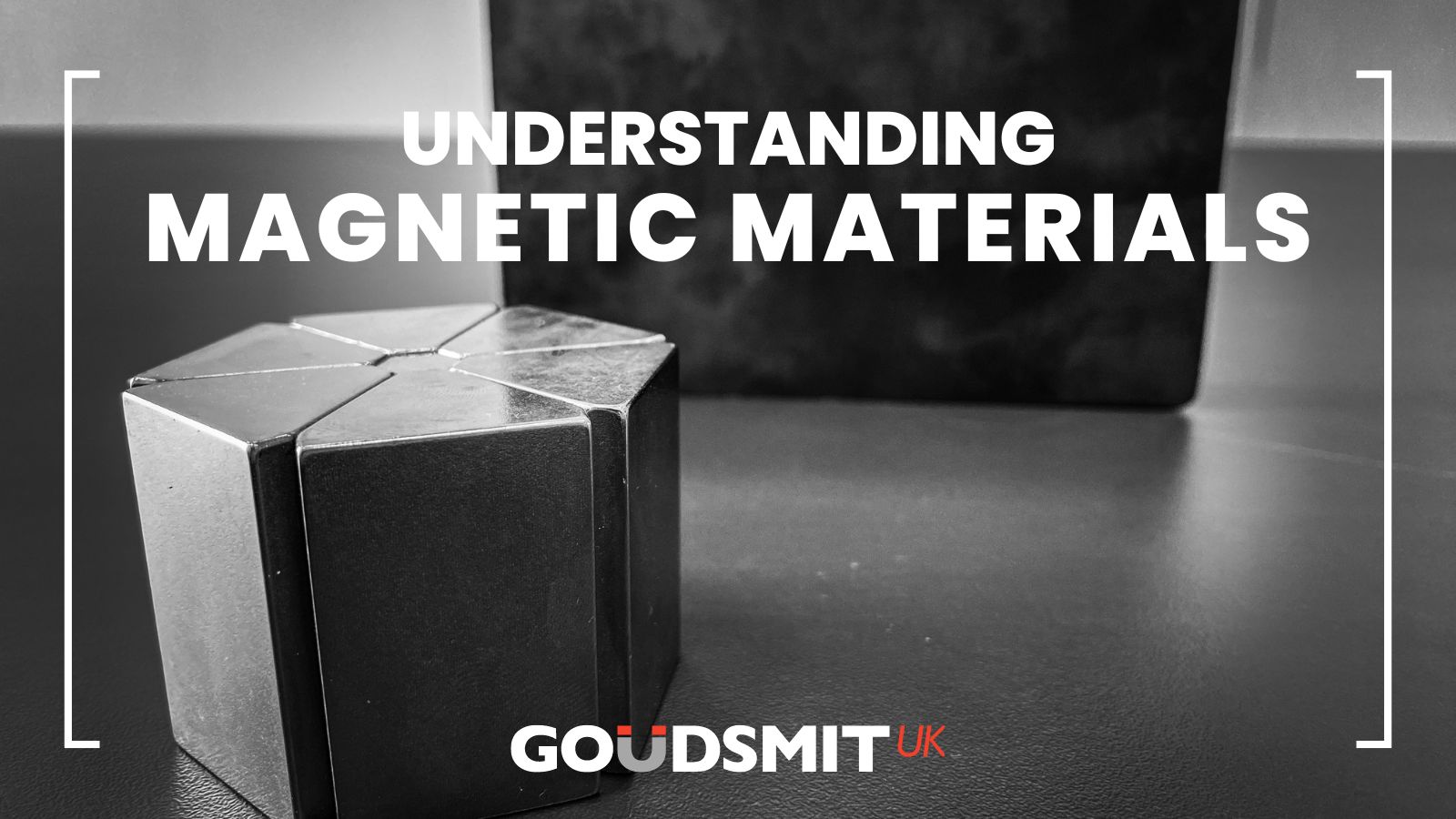Magnetism is a fascinating natural phenomenon that has been harnessed for countless applications in our modern world. Understanding different types of magnetic materials and their properties is crucial to leveraging their potential in various industries. In this blog post, we’ll explore four common magnetic materials: Samarium Cobalt, Alnico, Neodymium, and Ferrite, their unique characteristics, and also the wide range of applications they find in our everyday lives.
Magnetic Materials: A Brief Overview
Before we go into the specifics, it’s crucial to grasp the fundamental properties of magnetic materials. Magnetic materials are substances that can create and maintain a magnetic field. You can categorise them into two primary groups: ferromagnetic and non-ferromagnetic materials.
Ferromagnetic Materials: These materials exhibit strong and permanent magnetisation when exposed to a magnetic field. When you remove the field, they maintain some level of magnetisation. Iron, nickel, and cobalt are classic examples of ferromagnetic materials.
Non-Ferromagnetic Materials: These materials are weakly attracted to a magnetic field and do not retain magnetisation when the field is removed. Materials like aluminium, copper, and plastic fall into this category.
Now, let’s delve into the unique characteristics and applications of Samarium Cobalt, Alnico, Neodymium, and Ferrite.
1. Samarium Cobalt (SmCo)
Properties:
- High Magnetic Strength: Samarium Cobalt magnets exhibit exceptional magnetic strength, making them suitable for applications requiring powerful magnets.
- High Temperature Stability: They maintain their magnetic properties at elevated temperatures, which is crucial in some industrial settings.
- Corrosion Resistance: SmCo magnets are highly resistant to corrosion.
Applications:
- Aerospace: Applications, such as sensors and actuators, utilize SmCo magnets.
- Medical Devices: Medical equipment like MRI machines and hearing aids use them.
- Military: SmCo magnets play a role in various military applications, including missile guidance systems.
- High-Performance Motors: Electric motors in robotics and automation often use SmCo magnets for their high torque and temperature resistance.
2. Alnico (Aluminum-Nickel-Cobalt)
Properties:
- High Magnetic Strength: Alnico magnets exhibit strong magnetic properties.
- Excellent Temperature Stability: They can withstand high temperatures without significant loss of magnetisation.
- Low Coercivity: Alnico magnets are easy to magnetise and demagnetise.
Applications:
- Electric Guitars: Guitar pickups commonly contain Alnico magnets, and these magnets have a significant impact on shaping the instrument’s sound.
- Sensors: They are used in various sensors, including those in speedometers and compasses.
- Generators: Manufacturers have used Alnico magnets in generators and electric motors.
- Loudspeakers: They find applications in high-quality audio equipment.
3. Neodymium (NdFeB)
Properties:
- Extreme Magnetic Strength: Neodymium magnets are the strongest permanent magnets known.
- Brittle and Prone to Corrosion: They require protective coatings to prevent damage and corrosion.
- High Energy Density: Neodymium magnets have a high energy product, making them compact and efficient.
Applications:
- Consumer Electronics: Neodymium magnets are used in headphones, speakers, and hard drives.
- Electric Vehicles (EVs): Electric motors in EVs often utilise neodymium magnets for their power and efficiency.
- Medical Devices: They find applications in MRI machines and precision medical equipment.
- Green Technologies: Wind turbines and hybrid/electric vehicle systems benefit from neodymium magnets.
4. Ferrite (Ceramic)
Properties:
- Low Magnetic Strength: Ferrite magnets have lower magnetic strength compared to other types.
- Excellent Stability: They are highly stable over a wide range of temperatures.
- Cost-Effective: Ferrite magnets are cost-efficient to produce.
Applications:
- Refrigerator Magnets: Ferrite magnets are commonly used in refrigerator magnets.
- Electric Motors: They are used in low-cost electric motors for various applications.
- Magnetic Separators: Ferrite magnets help separate ferrous materials in recycling facilities.
- Speakers: Ferrite magnets are used in low-cost, entry-level speakers.
Magnetic materials play a pivotal role in various industries, from electronics and automotive to healthcare and aerospace. Understanding the unique properties and applications of materials like Samarium Cobalt, Alnico, Neodymium, and Ferrite allows us to harness the power of magnetism in innovative and practical ways, making our lives more efficient and convenient. Whether you’re using headphones to enjoy music or benefiting from advanced medical diagnostics, magnetic materials work quietly but actively, playing a role in shaping our modern world.
Goudsmit UK
At Goudsmit UK, we take pride in being one of the leading manufacturers of custom magnets and magnetic assemblies. Our commitment to quality and innovation ensures that we can provide tailored solutions to meet your specific needs. If you’re looking for more information or have any questions about magnetic materials and their applications, please don’t hesitate to get in touch with us. We’re here to help you discover the full potential of magnetic technology.
Download our comprehensive products and services brochure here.







